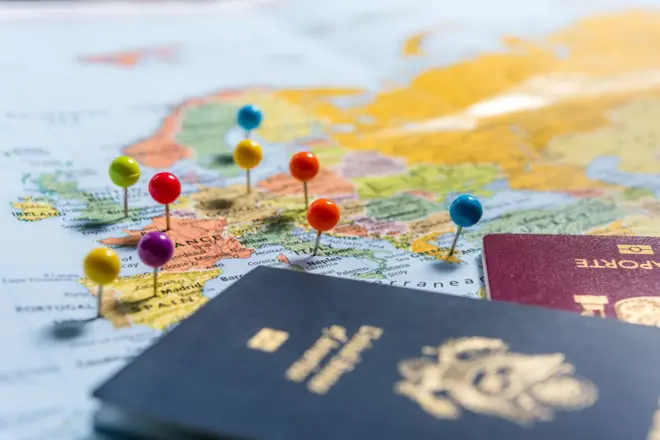
In today’s dynamic workforce, freelancing has become a popular career choice for many professionals across various industries. Freelancers enjoy the flexibility of working on their own terms, often choosing when, where, and how much they work. However, freelancing in foreign countries often requires legal documentation to ensure compliance with immigration laws. One such document is the freelance visa. In this article, we will explore what a freelance visa is, who needs one, and the benefits it offers to those looking to establish themselves as self-employed professionals in another country.

Understanding the Freelance Visa
A freelance visa in dubai is a type of residence permit that allows individuals to work as self-employed professionals or freelancers in a specific country. The visa gives freelancers the legal right to work without being tied to a single employer, which is particularly advantageous for professionals who work in fields such as technology, media, creative industries, consulting, and design.
Freelance visas are typically issued by governments to encourage skilled workers to contribute to the economy. These visas offer greater flexibility and freedom to individuals who wish to establish their business or work independently without the constraints of a traditional employer-employee relationship.
The requirements, duration, and benefits of freelance visas can vary significantly depending on the country. In the United Arab Emirates (UAE), for example, the freelance visa is issued to those who wish to work in the country as freelancers without the need to sponsor an employer or company.
Key Features of a Freelance Visa
A freelance visa typically includes several key features:
- Self-Employment: The visa allows the holder to work for multiple clients and projects without being tied to one employer.
- Residence Rights: Freelancers can reside in the country while working and may also have the option to sponsor family members.
- Tax Benefits: Freelancers may be subject to a different set of tax regulations compared to traditional employees, and some countries offer tax incentives to freelancers.
- Freedom of Movement: Freelance visa holders often enjoy the ability to travel freely within the country and may also be allowed to travel outside the country while maintaining their freelance status.
Types of Freelance Visas
Countries offer various types of freelance visas, each with specific benefits. Some common types include:
- Short-Term Freelance Visas: These visas are typically valid for a year or less and are suitable for individuals who want to work in a country temporarily.
- Long-Term Freelance Visas: These visas are granted for a longer period, usually up to three years, and are ideal for freelancers planning to establish themselves as long-term residents.
- Permanent Freelance Visas: Some countries offer permanent freelance visas for highly skilled professionals who meet specific criteria, such as having an established client base or generating a certain amount of income.
The type of visa a freelancer needs will depend on their specific circumstances, including the length of time they plan to work in the country and their professional expertise.
Who Needs a Freelance Visa?
A freelance visa is essential for individuals who wish to legally operate as self-employed professionals in foreign countries. However, not everyone is eligible to apply for one. Let’s take a look at who would need a freelance visa and the conditions under which they would apply.
Independent Contractors and Consultants
One of the main groups of people who need a freelance visa are independent contractors and consultants. These individuals typically work for themselves, providing services to various clients rather than being employed by a single organization. They may work in a range of sectors, including business consulting, IT consulting, marketing, financial services, and more.
Freelance visas allow independent contractors and consultants to operate legally in foreign countries and provide services to clients without needing an employer’s sponsorship. For example, a business consultant from India who wants to work in Dubai can apply for a freelance visa to legally provide consultancy services to businesses in the UAE.
Creative Professionals
Creative professionals, such as writers, designers, photographers, musicians, and artists, often operate as freelancers. The nature of their work requires flexibility and the ability to take on multiple projects. Creative professionals are among the most common applicants for freelance visas, as their work is often project-based and doesn’t require full-time employment with one company.
For example, a graphic designer may work for various clients in different industries, providing design services for websites, branding, and marketing materials. With a freelance visa, the designer can legally work with multiple clients and even run their own small design business in the country of their choice.
Technology and IT Experts
Technology professionals, such as software developers, web developers, cybersecurity experts, and data analysts, are in high demand globally. Many of these professionals prefer freelancing due to the flexibility it offers and the opportunity to work with clients across various regions.
For tech professionals, a freelance visa allows them to work for multiple companies and individuals in their area of expertise. Freelance visas for tech professionals are becoming increasingly popular in countries that are home to thriving tech industries, such as the UAE, Singapore, and several European nations.
Digital Nomads
The rise of digital nomadism has led to an increase in the number of people seeking freelance visas. Digital nomads are individuals who use technology to work remotely and travel the world. Many digital nomads operate in fields like content writing, web development, marketing, and consulting.
Digital nomads benefit from freelance visas, as these visas allow them to live in a country for an extended period while continuing to work remotely for clients. Some countries even have specific visa programs designed for digital nomads, providing a clear path for those who wish to live and work in a foreign country on a temporary or long-term basis.
Entrepreneurs and Startups
Freelance visas are also attractive to entrepreneurs who are starting their own businesses. Freelancers can work independently to establish their brands, products, and services. These individuals may work from home or set up a small office, and their freelance visa gives them the right to operate legally in the country.
Freelance visas for entrepreneurs are particularly useful in countries with vibrant startup ecosystems. Many countries offer special incentives for freelancers who are also entrepreneurs, including lower taxes or access to grants and funding.
Who Doesn’t Need a Freelance Visa?
While freelancers typically require a visa to work legally in a foreign country, some individuals may not need one. This includes:
- Employees on Employer-Sponsored Visas: If an individual is employed by a company and is on an employer-sponsored work visa, they do not need a freelance visa. However, they are restricted to working only for the employer who sponsors their visa.
- Short-Term Visitors or Tourists: Individuals who are visiting a country for tourism purposes do not need a freelance visa unless they are conducting business activities during their stay. In such cases, they may need a business visa rather than a freelance visa.
Benefits of a Freelance Visa
Freelance visas come with a range of benefits, both for the freelancer and the host country. Here are some of the main advantages:
Flexibility in Work
The primary benefit of a freelance visa is the flexibility it offers. Freelancers are not tied to a single employer, which allows them to take on multiple projects and work with various clients. This flexibility also allows freelancers to choose the types of work they want to pursue and set their own rates and hours.
Access to Global Markets
Freelancers with a visa can work with clients from all over the world, opening up opportunities for global collaboration. This is especially beneficial for those in digital industries, such as technology, marketing, and design, where demand is global.
Legal Compliance
A freelance visa ensures that the freelancer is working legally in the host country, which is crucial for avoiding fines, penalties, or deportation. The visa also often provides the freelancer with the right to live and work in the country for an extended period.
Networking Opportunities
Living and working in a foreign country offers freelancers the opportunity to expand their professional networks. Freelancers can meet potential clients, collaborators, and business partners, which can lead to new opportunities and increased business growth.
Conclusion
A freelance visa is a valuable tool for self-employed professionals who wish to work legally in a foreign country. It allows individuals in various industries, from creative professions to technology experts, to work on their terms and access global markets. While not everyone needs a freelance visa, it is an essential document for those who want to work independently and legally in another country. If you’re a freelancer or self-employed individual looking to expand your career opportunities internationally, a freelance visa could be your key to success.
For More Isightful Articles Related To This Topic, Feel Free To Visit: trendburst




Leave a Reply